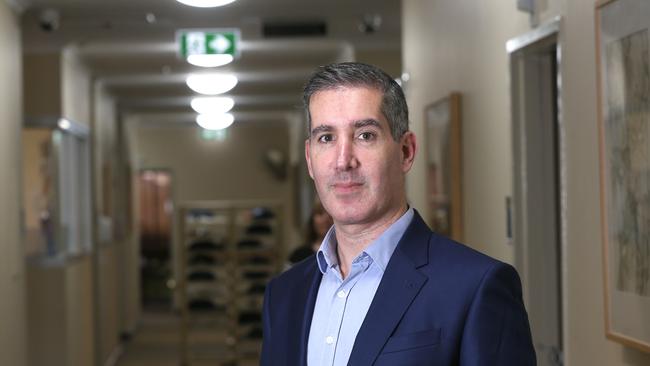Barwon Health sees rise in ARFID, young people seeking help for eating disorders
The average age of Barwon Health’s eating disorder service patients is just 13 to 14, as clinics reveal restrictive behaviours that are becoming more common.

Geelong
Don't miss out on the headlines from Geelong. Followed categories will be added to My News.
Barwon Health is seeing more patients suffering an eating disorder characterised by an aversion to food but not motivated by weight loss.
Hollie Laver, manager of Barwon Health’s eating disorder service, which sees patients up to 25, said the average age of its users was 13 to 14.
She said demand remained steady since the height of the Covid-19 pandemic.
“Following the pandemic, there has been a rise in referrals of younger people accessing the services,” she said.
Ms Laver said anorexia nervosa and atypical anorexia nervosa – where a person has anorexia symptoms but is not underweight – were the most prevalent disorders seen in referrals.
“There has been a noticeable increase in avoidant restrictive food intake disorder (ARFID),” she said.
While ARFID is similar to anorexia nervosa in that a person restricts their food intake, the intent or reason for limiting food intake differs, according to Eating Disorders Victoria.
People with ARFID do not restrict food to avoid weight gain and the disorder can be associated with fear of consequences associated with eating, such as choking, or a phobia of a particular foods, the organisation says.
Dr Russell Golden, clinical director of the eating disorders Proactive Recovery Enhancement Program (PREP) at private health facility The Geelong Clinic, said the waiting list for his program was currently about four weeks.
This was less than during the height of the pandemic, but still represented a strong and ongoing demand for the service, he said.
PREP is an inpatient program for those aged 16 years and above, and helps build skills in replacing eating disorder behaviours.
“While we see a wide range of patient cohorts seeking treatment and support, demand is highest among females beginning in late adolescence,” he said.
“We offer a tailored and inclusive program catering for all age groups and genders, which is individualised and trauma centred.
“In terms of initial presentations among young people, orthorexia (extreme preoccupation with healthy eating) has been steadily increasing for a number of years now.
“If not managed, orthorexia can be a precipitant to full-blown anorexia.
“We are also starting to see an increase in patients with eating disorders who have undergone bariatric surgery, a cohort previously not sufficiently recognised or seeking treatment.”
He said binge eating disorders were the most prevalent in Australia.
Ms Laver said research demonstrated that dieting was the main risk factor for the development of eating disorders.
“Dieting and the thin ideal body type are still idealised and celebrated in our society, which can create challenges for young people,” she said.
“If you have concerns about your teenager’s diet or weight loss, Barwon Health recommends seeing a GP along with accessing online tools and resources to seek support.
“Some resources include Eating Disorders Victoria, Butterfly Foundation and Feed Your Instinct.
“Early intervention and support are critical for getting the best outcome for young people and children.”
For help, people can call The Butterfly Foundation national helpline on 1800 334 673 or Eating Disorders Victoria on 1300 550 236
Originally published as Barwon Health sees rise in ARFID, young people seeking help for eating disorders





